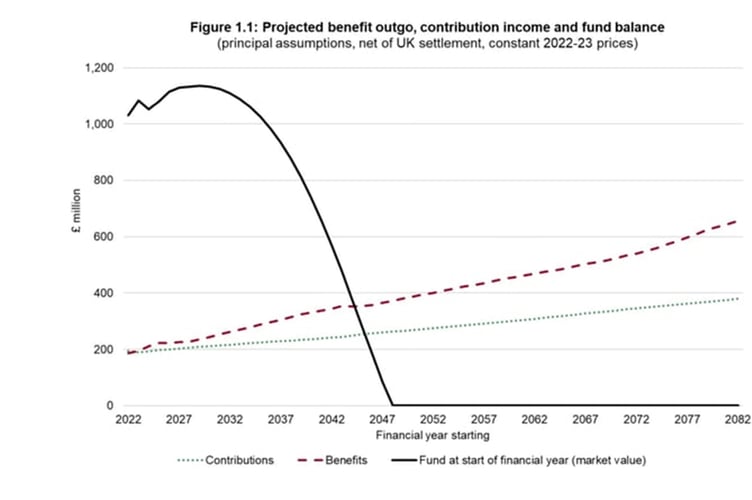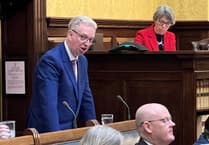Measures to secure the future sustainability of the National Insurance Fund are to be presented to Tynwald.
The NI Fund had been predicted to fall to zero in 2052-53, according to a review carried out in 2017, because of a growing shortfall between contributions and spending on benefits.
The Treasury's department plan which will be presented to this month’s Tynwald has a reference to 'reserves policies being considered due to financial position and policy on the size and scope of NI Fund will be presented to Tynwald'.
Treasury Minister Dr Alex Allinson said: ‘There will be a report coming to Tynwald shortly to show the ongoing importance of the NI Fund and measures which will need to be considered to ensure it is sustainable and can provide for current and future pensions.
‘This work is in addition to the extensive work already carried out to ensure the optimal investment return is achieved regarding government reserves.
‘The latest GAD report which was laid before Tynwald showed the NI Fund would be exhausted by 2047-48 if no changes were made.
‘Treasury have analysed a range of options to ensure the fund is sustainable in the long term and will be presenting these for discussion once Tynwald returns from the summer recess.’

The NI Fund is the third largest source of government revenue and pays for the majority of pensions and benefits as well as contributing to the funding of the Manx NHS.
It also played a key role in funding various government support packages during the Covid pandemic.
The growing shortfall between benefit payments and contributions is largely driven by the island’s increasingly ageing population, with fewer people of working age for each one who has reached pension age.
A 2021 report concluded there would be little public support for wholesale reform of the NI Fund.
Some of the NI contributions received each year are allocated to the Department of Health and Social Care to cover its expenditure
For 2022-23, this NHS allocation was £43m.
Funding for healthcare had hit the headlines in recent weeks after it emerged that Manx Care is currently forecasting a £16.8m overspend this year - although hopes to reduce that by £11m.
Elective surgery has been reduced in some areas to save £220,000, sparking criticism from doctors who say this could have ‘far-reaching consequences’ for patient care.
Dr Allinson said ‘The current NHS allocation from the fund is being calculated as part of next year’s Budget preparations but Treasury is still pursuing the Medium Term Financial plan as updated in this year’s Budget.’


.jpeg?width=209&height=140&crop=209:145,smart&quality=75)

